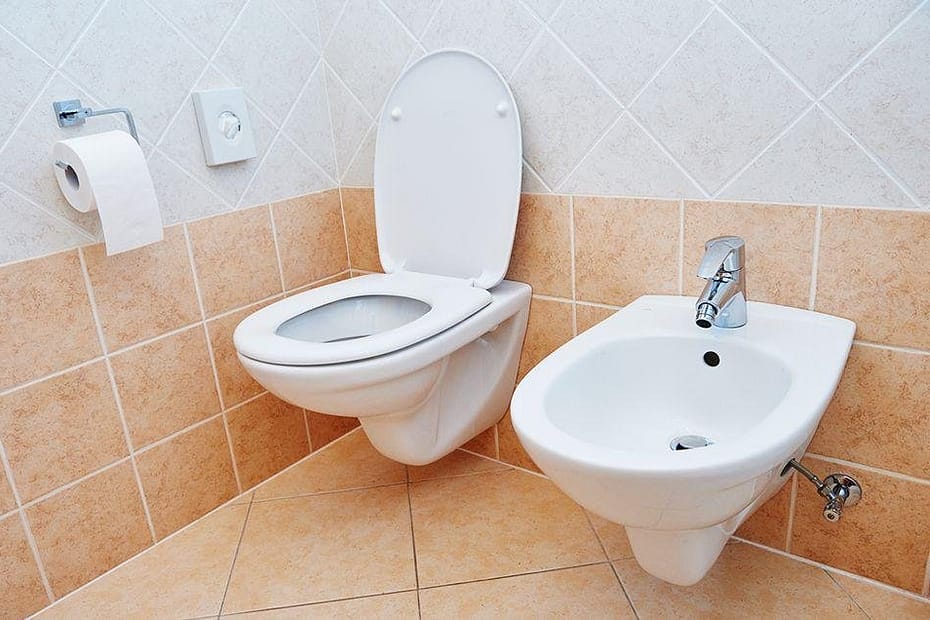How to Clean and Maintain Your Bidet: Health Benefits and Best Practices
Why a Bidet is Good for You
Bidets are not just a luxury – they’re a tool for improving your personal hygiene. Unlike toilet paper, which can leave behind bacteria, a bidet uses water to cleanse your private areas more thoroughly, reducing the chance of irritation and infection. In fact, studies show that using a bidet can help keep you cleaner than traditional toilet paper, making it a great option for everyone, especially those with medical conditions or limited mobility.
One study conducted on nursing home residents found that those using a bidet reported improved toileting experiences. So, whether you’re concerned about hygiene, comfort, or health, incorporating a bidet into your bathroom can make a big difference!
Cleaning Your Bidet: Easy Tips and Best Practices
Keeping your bidet clean is a simple task that only adds a few minutes to your routine. Regular cleaning ensures that your bidet remains in top shape and continues to provide hygienic benefits. Here’s how you can keep your bidet sparkling:
- Use a soft cloth: After each use, wipe down the seat with a clean cloth. This helps to prevent buildup and keeps things hygienic.
- Choose the right cleaner: Opt for a natural, non-abrasive cleaner like vinegar and water for a gentle clean that won’t damage the surface of your bidet.
- Clean the nozzle: Make sure to clean the nozzle regularly, especially if you have a self-cleaning bidet nozzle. This helps avoid clogs and ensures that the water spray is always effective.
- Use a towel: Keep a separate towel to dry the seat and nozzle after use, avoiding the use of a rag that could leave behind residue.
Regularly cleaning your bidet, including the nozzle and filters (if applicable), ensures that it remains functional and hygienic. Most modern bidets also have self-cleaning functions, so don’t forget to use those as part of your regular maintenance!
How a Bidet Can Help With Hemorrhoids and Anal Fissures
If you’re dealing with hemorrhoids or anal fissures, a bidet might be just what you need to help relieve discomfort. Unlike toilet paper, which can irritate sensitive areas, bidets provide a gentle and thorough cleanse, which can prevent further irritation and promote healing.
Here are some of the ways bidets can help with these conditions:
- Less irritation: Bidets clean without the harshness of toilet paper, which can dry out and irritate the skin, especially for those with hemorrhoids.
- Hygienic cleansing: By washing away germs and waste, bidets help reduce the spread of bacteria and discomfort.
- Comfortable wash: The warm water from many bidets soothes the affected area, providing relief from the pain of hemorrhoids or anal fissures.
While there’s more research needed on the direct effects of bidets on hemorrhoid healing, many users report that using a bidet helps prevent further irritation and discomfort. If you’re looking for a bidet to help with hemorrhoids, consider options with adjustable water pressure and a warm air dryer for added comfort.
Maintaining Your Bidet for Optimal Performance
To get the most out of your bidet, proper maintenance is key. Follow these simple steps to ensure your bidet stays in good working order:
- Turn off the water valve: Always make sure to turn off the water supply when cleaning or performing maintenance.
- Check for leaks: Inspect the hose connection to ensure it’s tight and not leaking. If you spot any leaks, replace the hose immediately.
- Use gentle cleaners: Avoid harsh chemicals or abrasive materials that could scratch or damage your bidet. Instead, use a soft cloth and a mild cleanser.
- Clean the nozzle and filters: For bidets with nozzles, use a toothbrush or soft brush to clean after each use. Make sure to clean the filters regularly to avoid mineral deposits.
With a little effort, you can keep your bidet in tip-top shape and ensure it continues to provide excellent hygiene benefits for you and your family.
Are Bidets Right for Everyone?
While bidets are a fantastic option for many people, they may not be suitable for everyone. The water temperature and pressure settings are key factors to consider, especially for those with sensitive skin. If you have any concerns about bidets affecting your personal health, it’s always a good idea to consult with a healthcare provider.
For those with medical conditions, such as hemorrhoids or anal fissures, a bidet can provide significant relief. However, always make sure to use it properly to avoid any irritation or discomfort. And don’t forget to choose a model with adjustable settings to best suit your needs!










